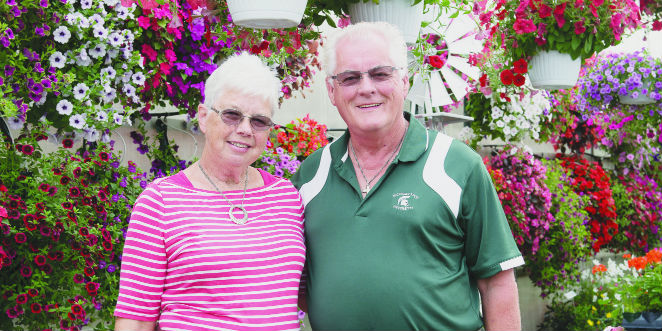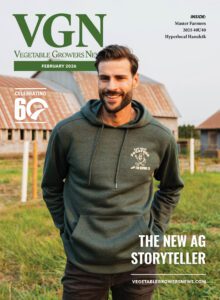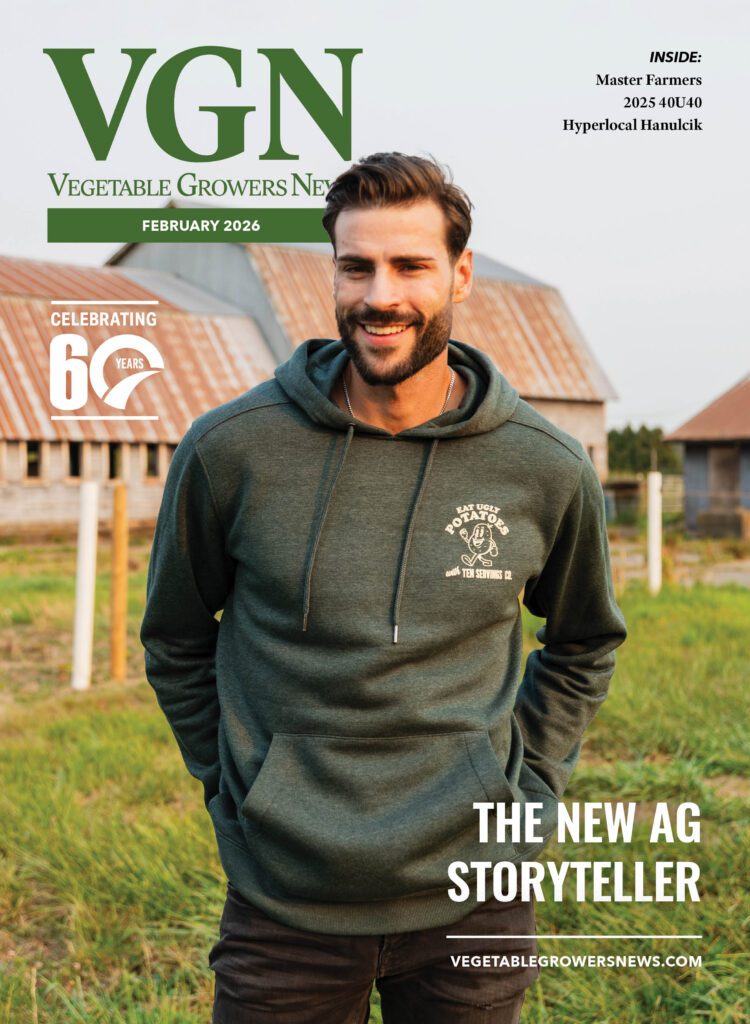Mar 31, 2016Diversification preserves Karnemaat Farms
With 10 children, Kent Karnemaat has gone through a lot of baby food.
He’s also grown no small amount of the produce that went into making it.
Kent and his brother, Tom, are the fourth generation of Karnemaats to farm in Fremont, Michigan. That’s also home to the Gerber baby food company, a longtime customer of the Karnemaats.
It all started with their great-grandfather, who came from the Netherlands around 1877 and bought the farm that today is Karnemaat Farms’ headquarters. His son, Albert, continued in farming, and then his son, Al, did the same. Today, Tom and Kent run the day-to-day business of Karnemaat Farms, which employs about half a dozen family members as well as around 30 full-time staff. Their dad escapes to California for a few months each winter, but comes back to Fremont for the balance of the year to, as he says, work for his sons.
Taking the reins
Al was born in 1942 and grew up on his parents’ farm, several miles away from his grandfather’s. He says the family business has survived – and thrived – by evolving with market conditions, working around obstacles and diversifying.
“We’re flexible and willing to go in a lot of different directions,” Kent said. “We have just tried to kind of position ourselves so we can stay profitable and grow.”
In the early 1960s and recently married to his wife, Marlene, Al bought his grandfather’s farm. In the meantime, he’d been working outside of the family business and had gained experience with fruit farming.
Deciding that they wanted to be full-time farmers on their own, he and Marlene bought a neighboring fruit farm and made a go of farming with that and the row crops they’d already been growing.
Around 1990, they sold the fruit farm, rented more land and decided to focus on vegetables.

“Things went very well for us,” Al said. “Gerber’s was a big customer for squash and peas. Then we started growing a lot of cucumbers and packed them ourselves for the fresh market – through a broker to chain stores. Bell peppers we packed fresh and sold to chain stores just like the cucumbers.”
They were also selling vegetables to large processors for use in soups, TV dinners and other prepared foods.
‘Kids’ take charge
Around that time, Al pulled back from the farming operations and went into real estate.
“My boys were married, they loved the work and they knew it from stem to stern because they grew up with it,” he said. “It was easy for me to give them responsibility, and before you knew it, they were man- aging the farm.”
Kent gives his dad credit for doing that.
“You see a lot of older men his age hanging on and keeping all the big decisions and leaving ‘kids’ 40 or 50 years old – they call them kids – to work,” Kent said. “He went and got a career in real estate and was pretty successful.
“He’s kind of semi-retired, but he’s here every day in the summer.”
Working in real estate helped Al be in a position to spot good investments, and so the Karnemaats periodically bought other farms. They’d install irrigation and make additional improvements to the land, fix up the house and sell it.
“You could take a farm that was somewhat run down, and with the right ditching and tiling and irrigation, it’s a very profitable farm,” he said.
Time to diversify
Around 2003, the Karnemaats decided go in with three other growers and buy a business in nearby Hart called Michigan Freeze Pack.
“We process our own stuff – about 80 percent – and then we buy a little from other growers to finish out the order,” Al said. “It’s added a lot of room for increased product, because now we have a good market for it, which we control ourselves.”
Michigan Freeze Pack provides individually quick frozen items like asparagus, zucchini, broccoli, carrots, potatoes and cabbage to Gerber and other customers including Request Foods, Nestle and Heinz. When the Karnemaats and their partners bought Michigan Freeze Pack, volume was around 10 million pounds a year; now it’s around 40 million, Al said.
“We clean it and chop it up in pieces – it’s diced to different dimensions, depending on the order, and individually quick frozen and put in the freezer,” Al said. “We hold it until the customer calls for it to be shipped. It’s all done to order.”
About a dozen years ago, not satisfied with the results they were getting from their commercial fertilizer, the Karnemaats decided to raise hogs and generate their own.
“That’s proved to be a very good thing,” Al said. “In fact, we’re building a second hog facility as we speak.”
More recently, they’ve added about 100 head of beef, with an eye toward direct marketing grass-fed beef. Another pivotal time, Al said, was around 2010, when they decided to cut the acreage of hand- harvested crops and increase plantings of produce that could be picked by machine.
“That increased the acreage of carrots and squash and peas,” Al said. “Then we added string beans in there because that could be machine harvested, and we added potatoes.
“We quit the cucumbers and the peppers. Our hand harvest is very minimal now, and that’s by design.”
He said the politics and regulations relating to labor became too great.

“We’ve got great employees – a lot have been here 15 or 20 years – but the environment we have to work in makes it difficult,” Kent said. “Going to mechanical harvesters – I would not be here if we had not changed that. I’m not going back to when we had up to 400 people a day working here.”
Fourth generation
Today, the Karnemaats farm about 3,000 acres, double cropping 500 of them, in a wider region than the original homestead. They own about half of that land and rent the rest.
“In doing business with Gerber, they kept encouraging us to expand out of the Fremont area, so we’ve done that,” Al said.
They also have a contract with Gerber to handle all of the harvest of certain crops like peas and squash – not just what they grow, but what other farmers produce.
“We have a receiving station at our farm for Gerber and one other company,” Al said. “They deliver their product they buy out of state to our location, and we store it for them until they want it on their line.”
Faith has always played a part in what the Karnemaats do.
“We have a strong faith, and that’s been handed down from generation to generation,” Al said. “We’d like to not take any of that credit ourselves, and just say our heavenly father has watched over and blessed us abundantly.”
Among those blessings? Al’s grandkids have come into the business now.
“I think the effort we’ve put forth to maintain it as a family business has been a real blessing of satisfaction,” he said. “You wonder if you’re doing the right thing to try and make room for them and build the business to support it, but looking back, Marlene and I are very happy that we’ve done that.
“There’s not a better way to raise a family than on a farm.”
— Kathy Gibbons, VGN correspondent

















